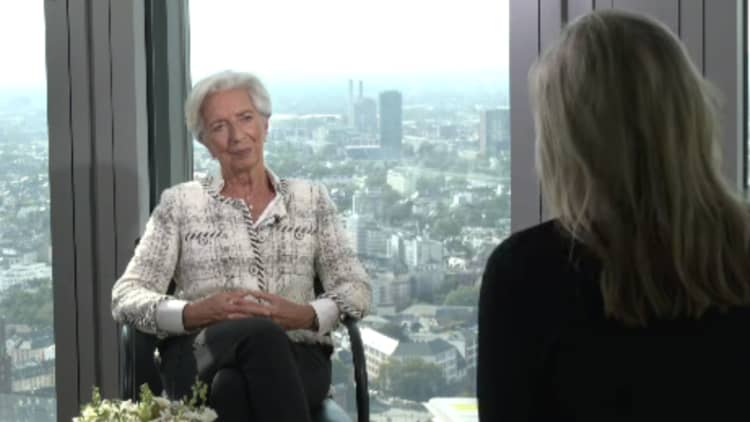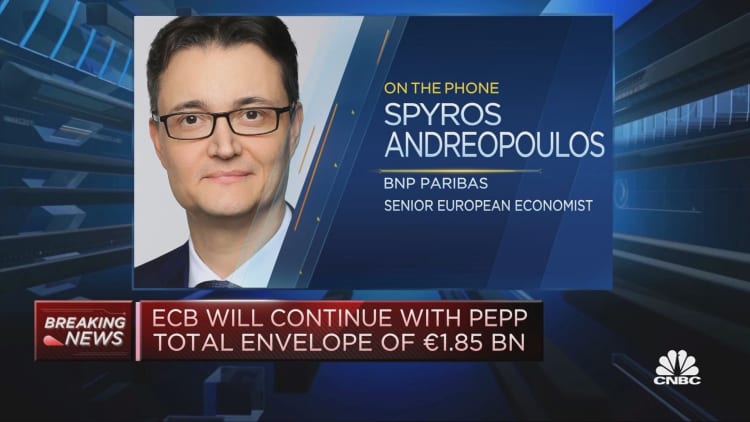Euro zone inflation hit a new 13-year high in October, as the currency bloc battles surging energy costs.
Headline inflation on Friday came in at 4.1% for this month, according to preliminary data from Europe's statistics office Eurostat.
This was the highest level since July 2008, according to Reuters data, and was ahead of a consensus forecast of 3.7%. September's figure had come in at 3.4%.
The rise has been driven higher by surging energy prices, deepening concern among policymakers. The energy component to the inflation data was up 23% year-on-year, by far the biggest contributor.
Third-quarter data out Friday also showed that GDP for the bloc grew 2.2% compared to the previous period, its fastest pace in a year.

"The solid increase in euro-zone GDP in Q3 means that the recovery phase is almost complete in most of the euro-zone," Andrew Kenningham, chief Europe economist at Capital Economics, said in a note.
"Growth will be much slower in the final quarter as supply chain disruption, slowing global demand and some labour shortages hamper production."
Kenningham added that euro zone headline and core inflation are likely to increase further over the next two months.
"Past moves in gas prices point to a further acceleration of energy inflation, and firms' expectations for their own selling prices imply that the core rate will keep rising too," he said.
Inflation is a key metric watched by the European Central Bank. It announced in September it would be buying fewer bonds off the back of surging consumer prices.

ECB President Christine Lagarde said Thursday that rising energy prices, the recovery in demand and supply bottlenecks are currently pushing up inflation.
"While inflation will take longer to decline than previously expected, we expect these factors to ease in the course of next year. We continue to foresee inflation in the medium term remaining below our 2% targets," she said.
The ECB foresees inflation at 2.2% in 2021, 1.7% in 2022 and 1.5% in 2023 — thus below its 2% target. The bank will be updating those forecasts in early December.
— CNBC's Silvia Amaro contributed to this article.


